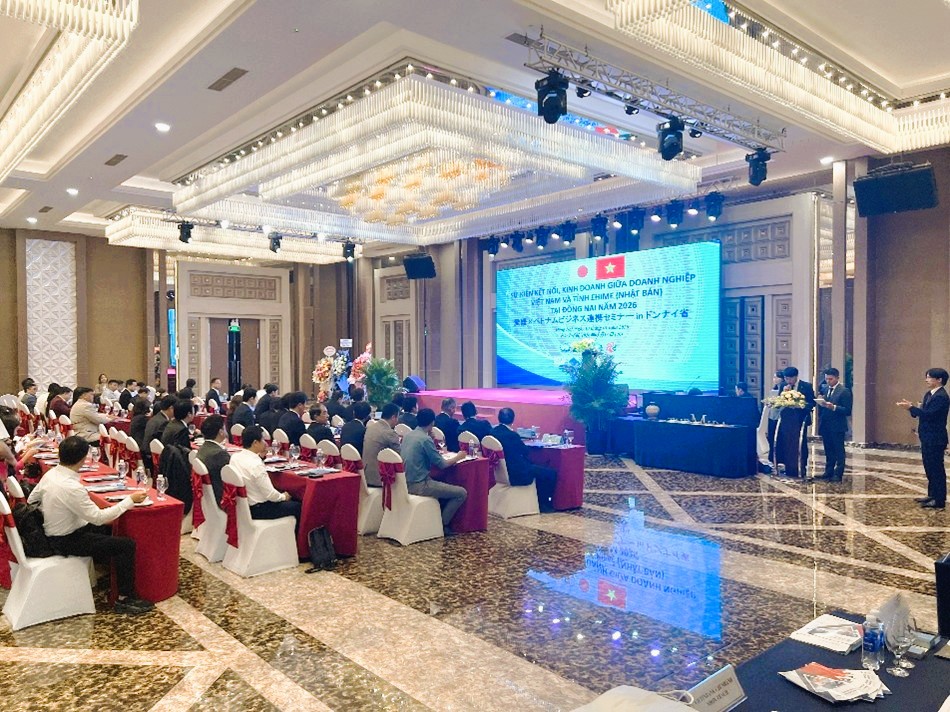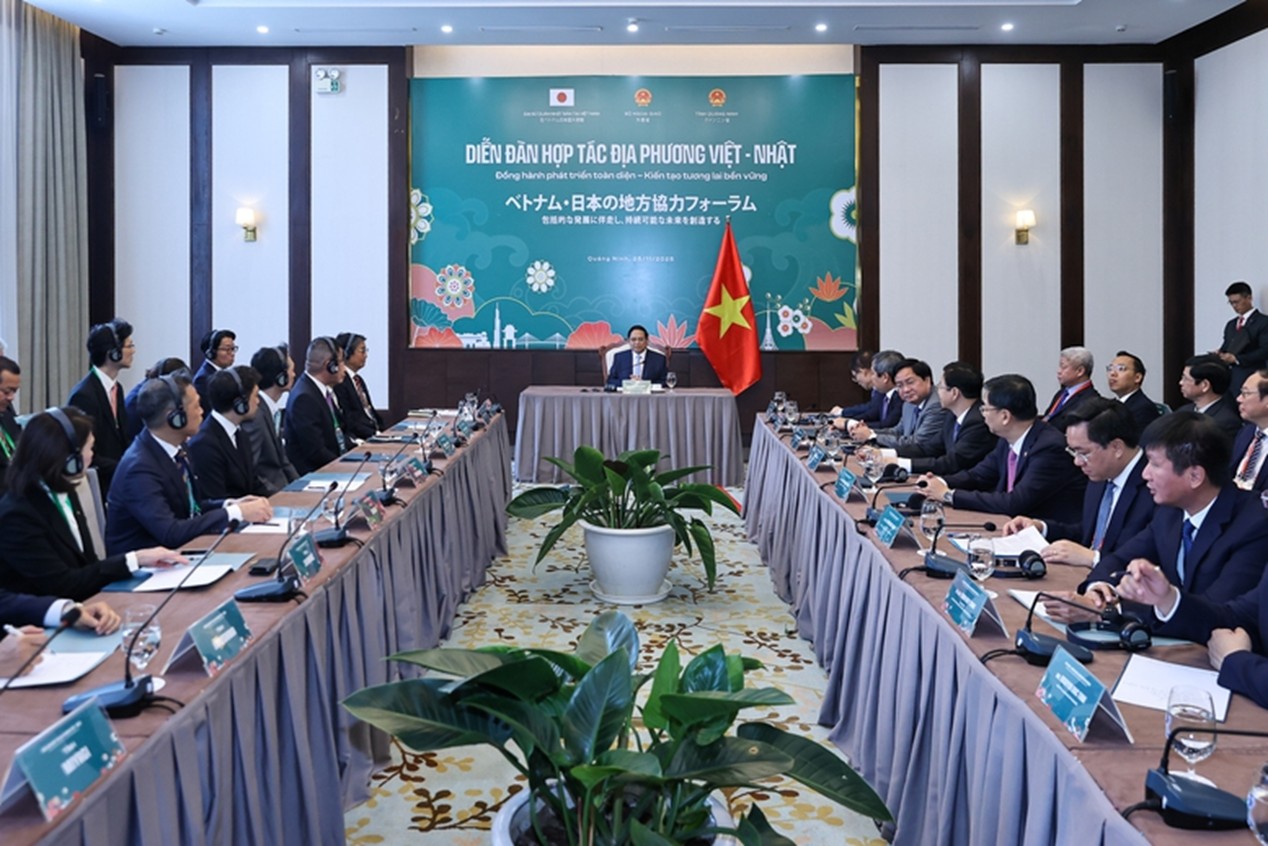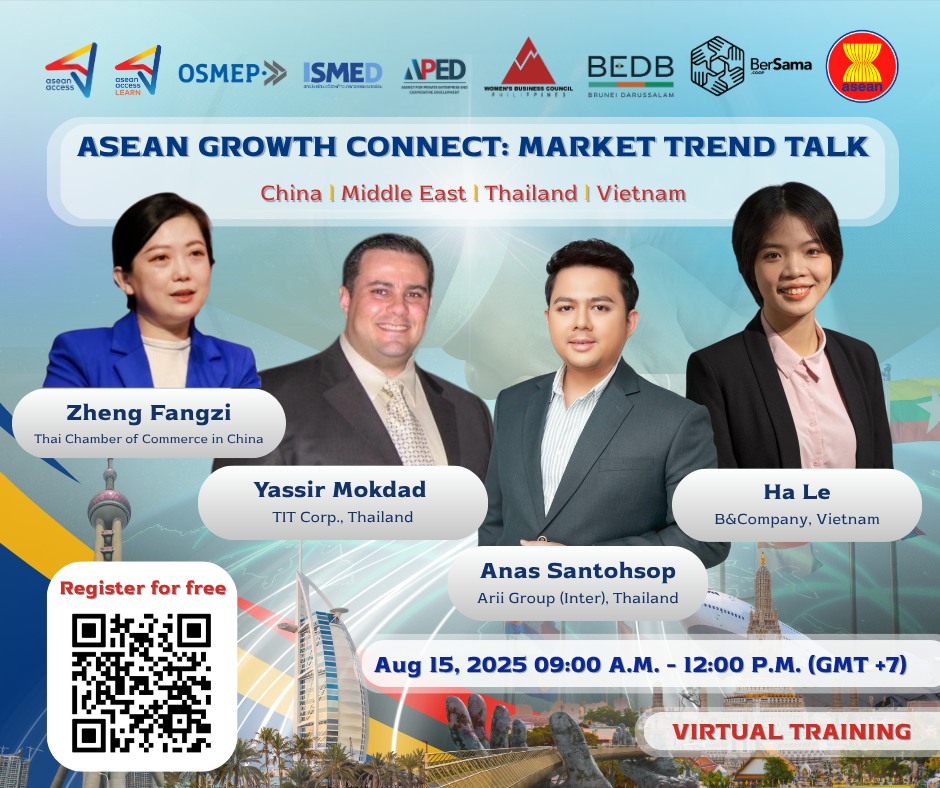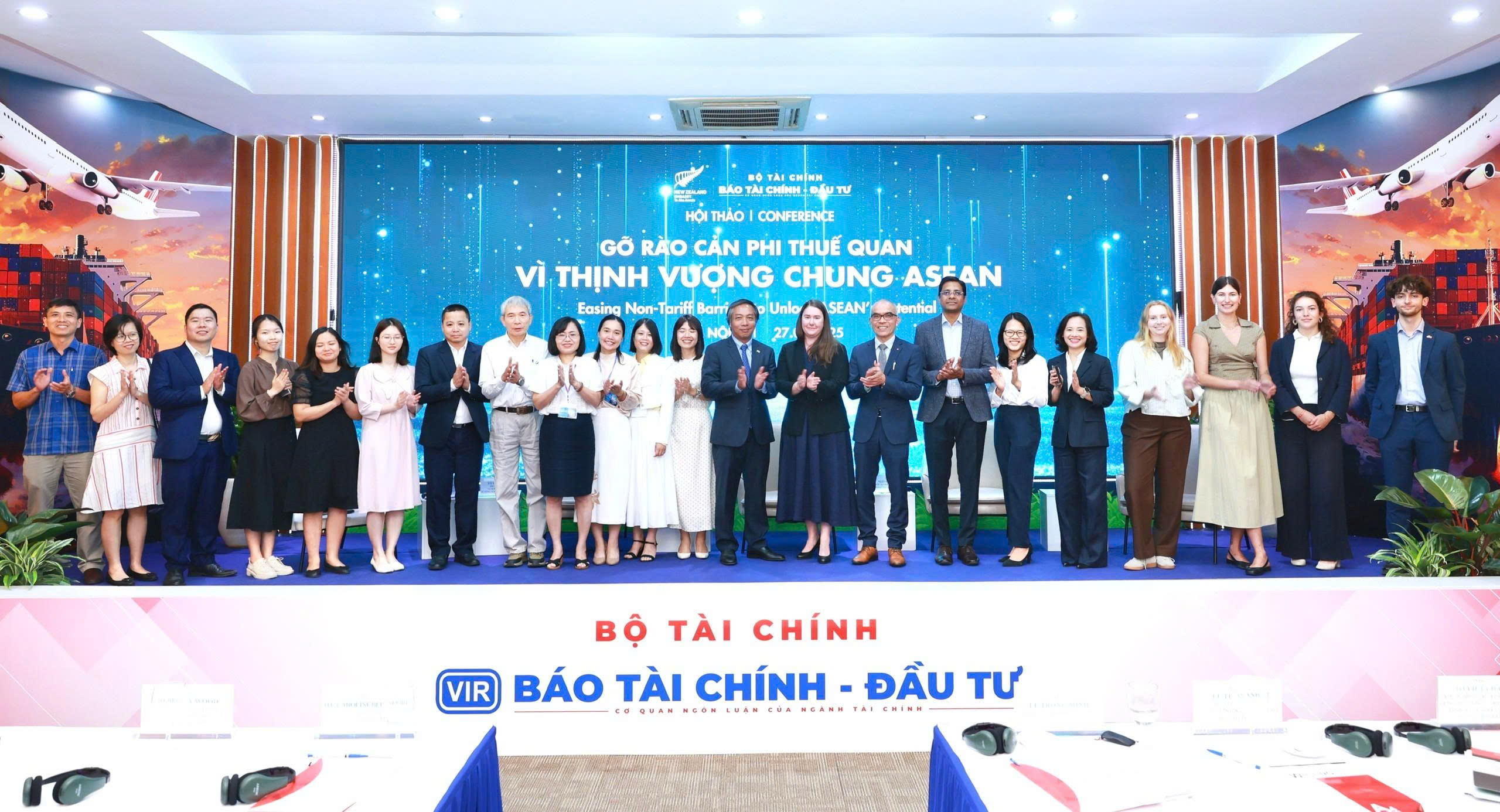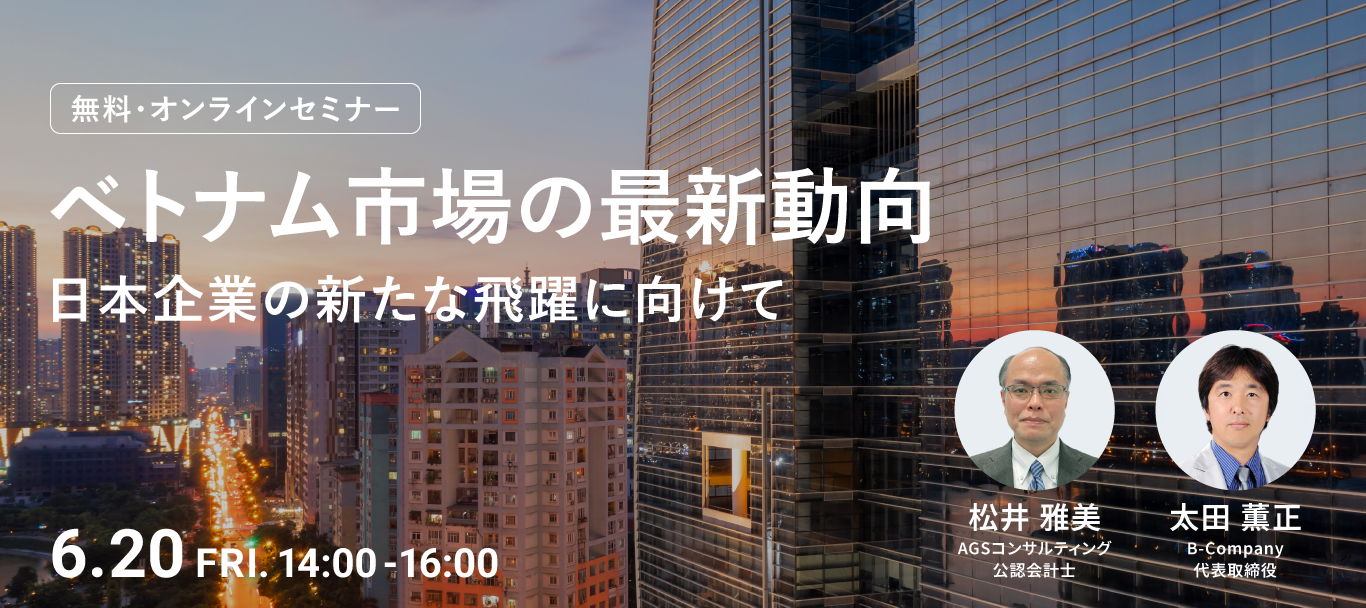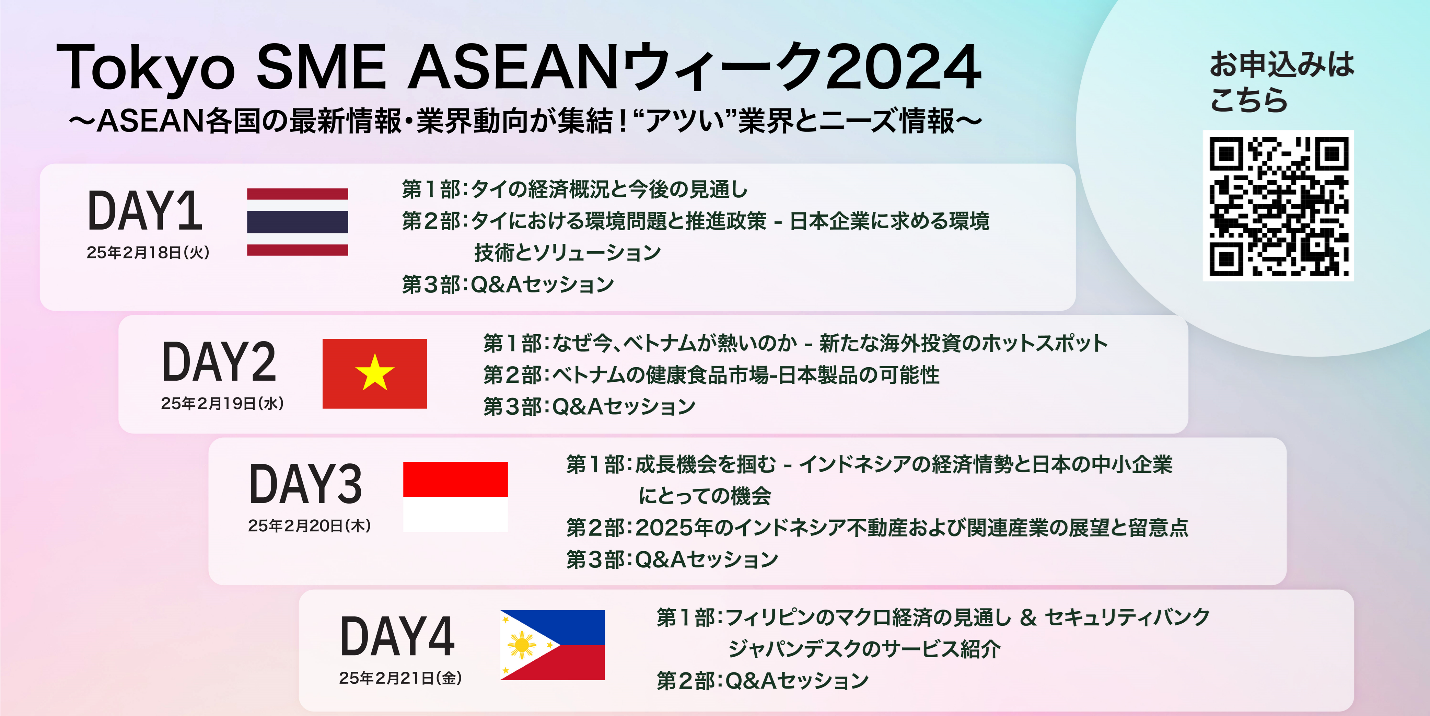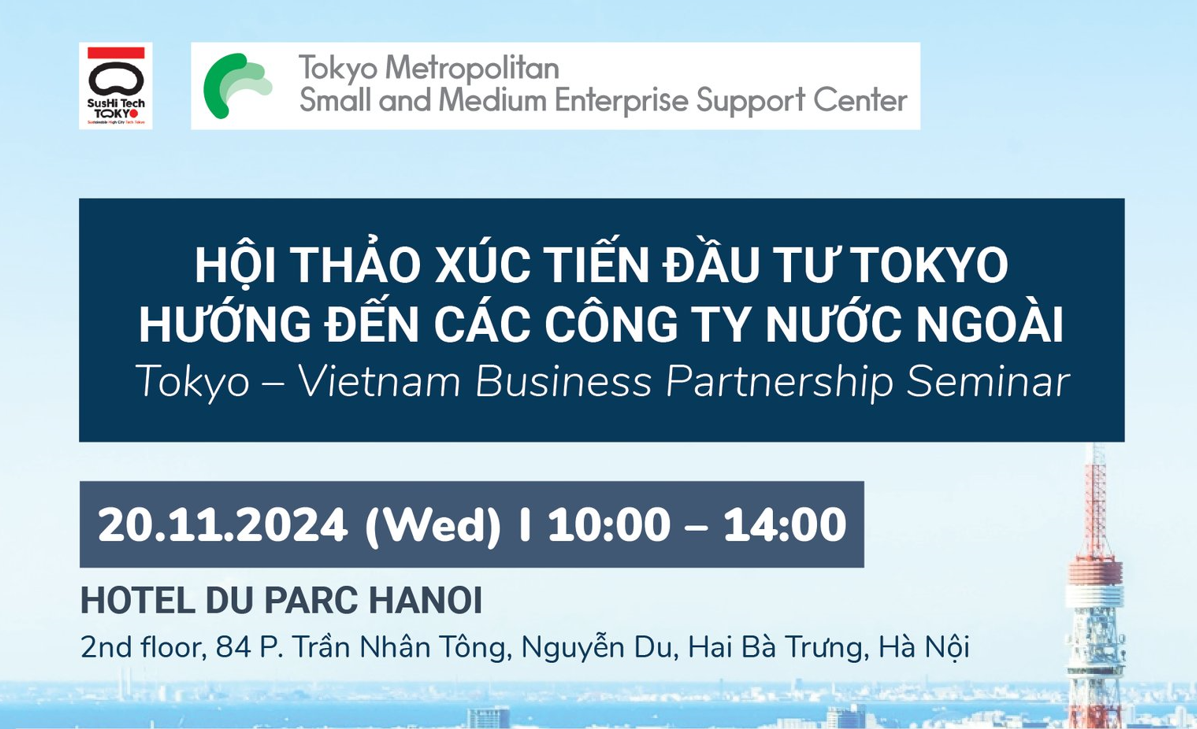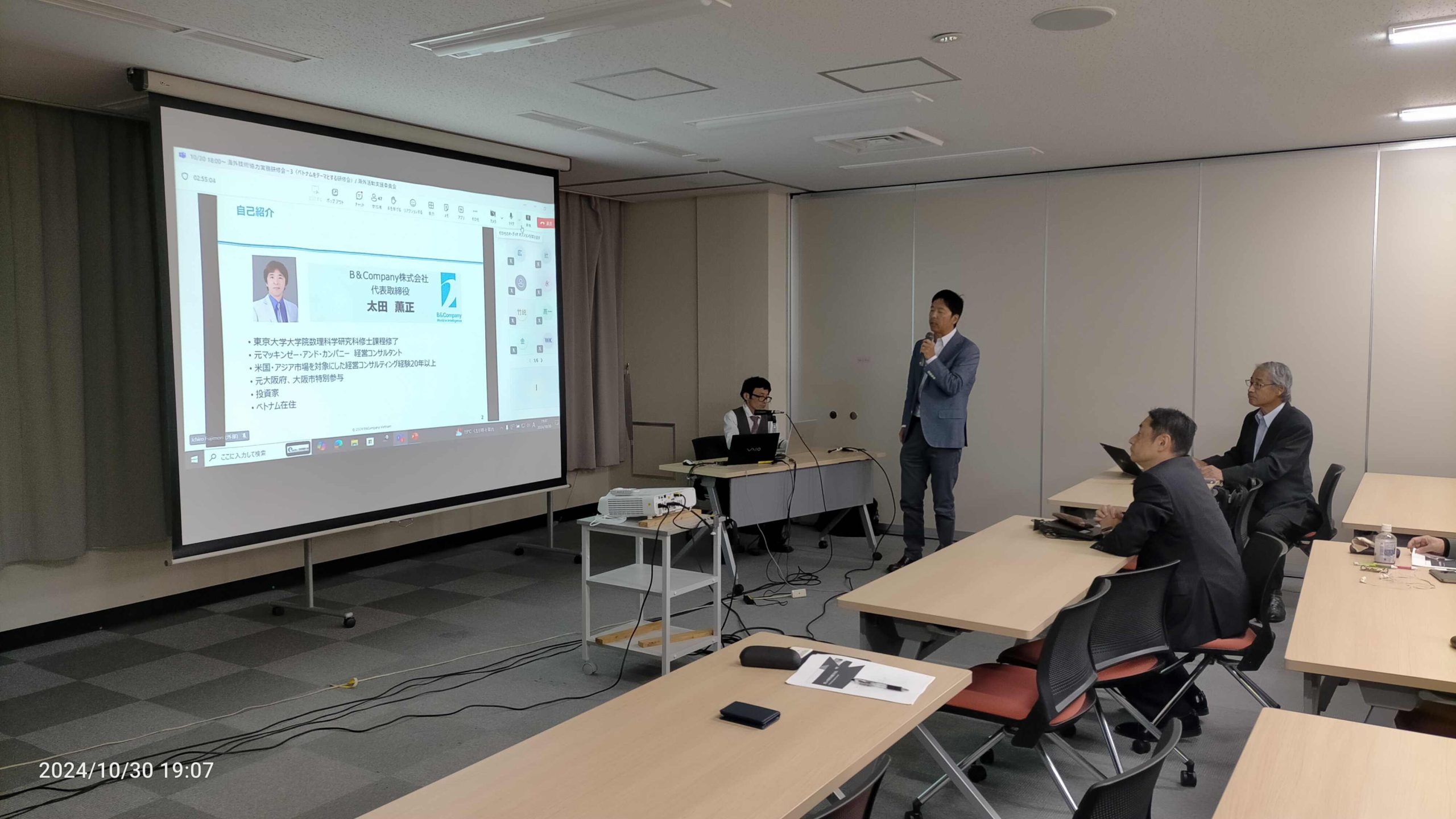
24Apr2025
Announcement / Highlight content / Latest News & Report
Comments: No Comments.
| B&Company Vietnam stands at the forefront of market research and consulting, specializing in the dynamic fields of renewable energy, smart city development, and sustainability. With extensive experience in projects such as legal framework research for the renewable energy sector and exploring the potential of the Building-Integrated Photovoltaics (BIPV) market in Vietnam, we are well-equipped to support both local and international stakeholders. Our strong connections with various high-tech startups in Vietnam enable us to drive innovative solutions in efficient energy and smart city initiatives. Moreover, our expertise in identifying M&A candidates in the renewable energy sector and conducting research on digitalization across multiple industries positions us as a valuable partner for navigating Vietnam’s evolving market landscape. For inquiries or collaboration opportunities, please contact us. |
As Vietnam moves decisively toward becoming a digital, sustainable urban society, international interest in its smart city agenda continues to rise. This momentum was clearly reflected in the Vietnam Smart City Bootcamp 2025, part of the Landing Pad Ho Chi Minh City initiative led by Austrade and NEXVN, which supports Australian tech companies in building market readiness and ecosystem engagement in Vietnam.
One of the most anticipated sessions of the Bootcamp—“Navigating the Market”—offered practical insights for foreign startups aiming to scale in Vietnam. The sharing session was led by Ms. Chi Dao, Senior Manager at B&Company Vietnam, a market research and overseas investment consulting firm from Japan. She was joined by Mr. Greg Ohan, CEO of The Sentry, a leading social real estate developer, and Mr. Son Bui, Senior Country Business Developer in Vietnam at BayWa r.e., a global renewable energy group. The session featured practical insights on local policy frameworks, sector-specific opportunities, and partnership strategies from a panel of cross-sector experts.
Strong Government Support Drives Vietnam’s Smart City Push
The session began by unpacking Vietnam’s national policy direction, emphasizing that smart city development here is policy-led and purpose-driven. Two key policy frameworks are particularly influential. Decision 749/QĐ-TTg outlines Vietnam’s National Digital Transformation Program to 2025, vision to 2030, highlighting eight priority sectors: healthcare, education, agriculture, energy, environment, transportation, finance, and manufacturing. Decision 950/QĐ-TTg sets out the National Scheme for Sustainable Smart City Development, encouraging provinces to develop their own smart urban roadmaps and invest in data infrastructure and digital services. Together, these policies provide a foundation for both public sector investment and private innovation, shaping where international companies can engage most effectively.
Sectoral Demands: Where Technology Meets Real Needs
The session emphasized that success in Vietnam’s smart city space requires technology solutions to be grounded in sector-specific realities. It’s not about offering the most advanced technology, but rather about solving pressing, clearly understood problems. Three sectors stood out during the discussion:
Environmental Management & Renewable Energy: With mounting pressures around pollution and carbon emissions, Vietnam is seeking solutions in greenhouse gas monitoring, waste collection optimization, and renewable energy forecasting.
Healthcare: As the population ages and urban demand increases, opportunities are emerging for telemedicine, digital rehabilitation, and centralized pharmaceutical data systems to improve accessibility and efficiency.
Logistics & Urban Mobility: Congestion and rapid urbanization continue to challenge cities like Hanoi and Ho Chi Minh City. There is a need for smart parking systems, public transport navigation platforms, and last-mile delivery optimization technologies.
These areas are not just policy priorities—they reflect actual gaps in service delivery and infrastructure, making them ripe for tailored, scalable solutions.
Navigating City-Specific Priorities
One of the key insights from the session was that Vietnam’s smart city roadmap is highly decentralized. Each major city has its own development focus, shaped by its economic profile, geographic characteristics, and leadership vision. Hanoi is advancing initiatives in environmental monitoring, e-governance, and traffic control. Ho Chi Minh City is prioritizing smart transportation, green mobility, and AI-driven public services. Da Nang positions itself as a sustainable coastal city with a strong focus on eco-tourism and environmental solutions. Meanwhile, Can Tho—the leading smart city of the Mekong Delta region—is investing in water management, flood resilience, and climate-smart agriculture.
For foreign companies, this diversity means that a one-size-fits-all approach won’t be effective. Success requires city-specific strategies and targeted partnerships that align with each locality’s distinct priorities.
Challenges Along the Way
Entering Vietnam’s market can be rewarding, but not without hurdles. The speakers outlined a number of practical challenges that startups may face.
– Regulatory complexity: Licensing requirements, capital contributions, and documentation can vary and often require persistent follow-up.
– Talent competition: Skilled tech and business professionals are in high demand, particularly in larger cities.
– Cultural differences: Building trust and navigating business relationships requires cultural fluency and often face-to-face engagement.
– Product-market fit: Without localization, whether in language, interface, or price point—even great technologies can fail to gain traction.
In short, deep local insight and adaptability are vital for success.
Navigating funding sources
The session also touched on how startups can secure support for pilot projects or expansion. Vietnam offers both donor-backed and private funding options. Donor-funded programs often support government-led pilot projects in digital governance, smart infrastructure, and climate resilience. Meanwhile, Private capital and innovation funds are active in backing scalable, commercially viable smart city technologies.
Conclusion: Local Relevance is the Key
The Vietnam Smart City Bootcamp 2025 made it clear: Vietnam is a promising but complex market. Policy alignment, local partnerships, and responsiveness to real demand are far more important than simply having the latest technology. For foreign startups, especially those new to Southeast Asia, working with local consulting and market research firms can be a powerful enabler. These partners help translate policy, connect with city stakeholders, and ensure product-market fit—essential ingredients for success in Vietnam’s evolving smart urban future.
* If you wish to quote any information from this article, please kindly cite the source along with the link to the original article to respect copyright.
| B&Company
The first Japanese company specializing in market research in Vietnam since 2008. We provide a wide range of services including industry reports, industry interviews, consumer surveys, business matching. Additionally, we have recently developed a database of over 900,000 companies in Vietnam, which can be used to search for partners and analyze the market. Please do not hesitate to contact us if you have any queries. info@b-company.jp + (84) 28 3910 3913 |


